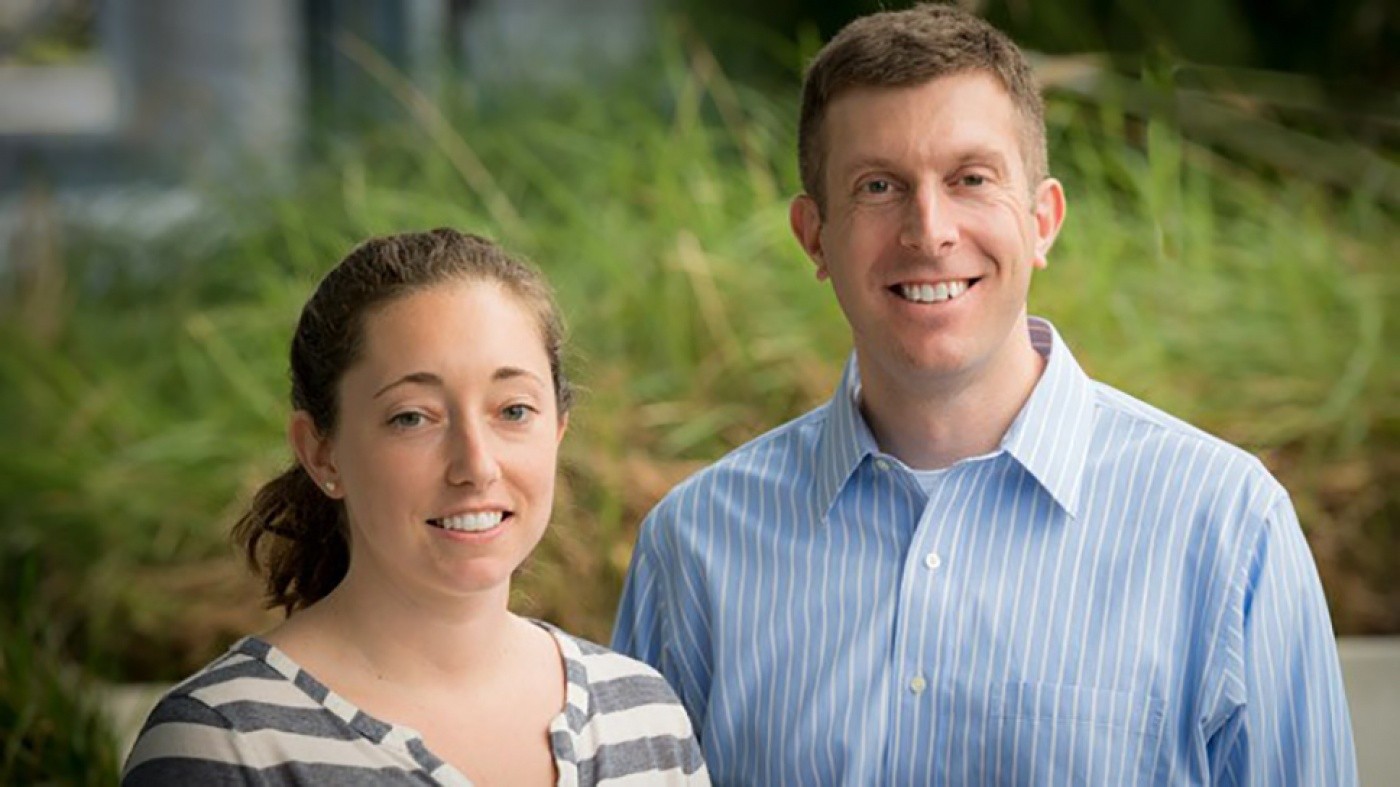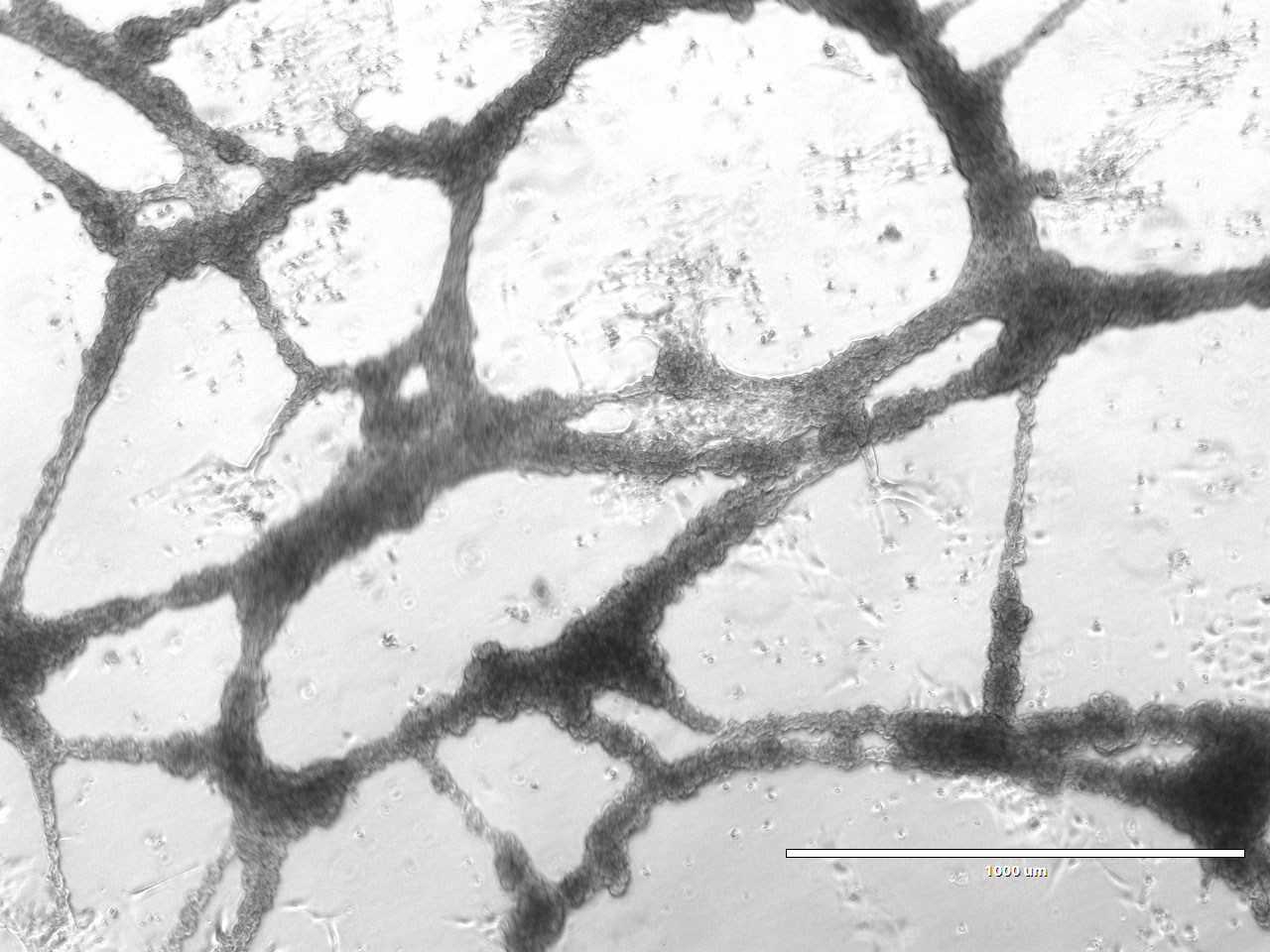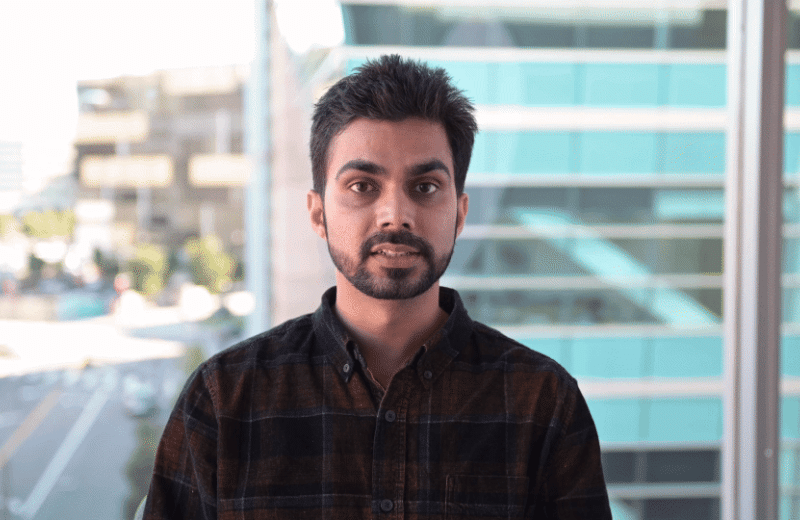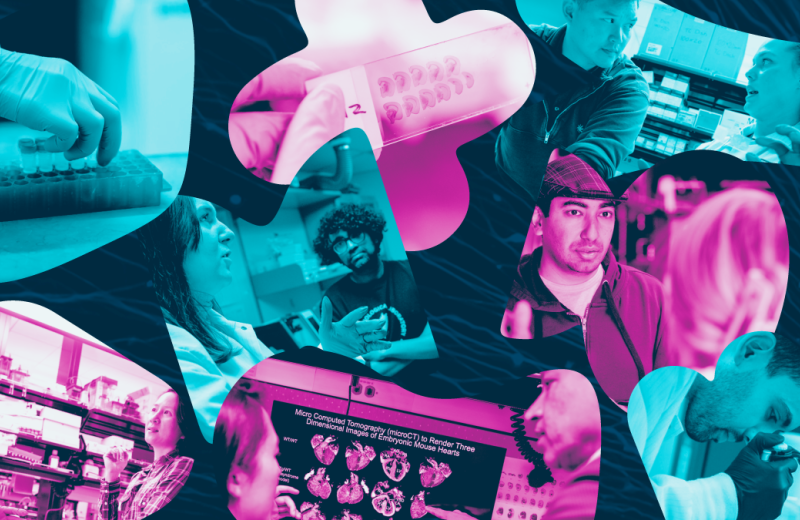Gladstone NOW: The Campaign Join Us on the Journey✕

Drs. Gifford and Newman are the recipients of two highly coveted young investigator grants to pursue research into epigenetics and heart disease, and the role of ketone bodies in aging, respectively. [Photo: Chris Goodfellow]
Two postdoctoral fellows at the Gladstone Institutes are the recent recipients of highly prestigious research grants for young investigators, recognizing their innovative thinking and commitment to life science research. The awards also underscore the strong foundation and mentorship that Gladstone provides to investigators, facilitating their advancement in biomedical science.
From the Gladstone Institute of Cardiovascular Disease, Casey Gifford, PhD, a postdoctoral fellow in the lab of Director Deepak Srivastava, MD, was named a Damon Runyon/Howard Hughes Medical Institute Fellow by the Damon Runyon Cancer Research Foundation. The award is given out to fifteen young investigators every year, providing funding to advance basic research of terminal diseases.
“The Damon Runyon fellowship is one of the most select early career grants in biomedical science, identifying young scientists with exceptional potential to make discoveries in disease research,” says Dr. Srivastava. “We are very proud of Casey for her accomplishments, and we are excited to see what she will achieve with the additional support from this award.”
With the grant, Dr. Gifford will be exploring epigenetic processes: how DNA is manipulated in the nucleus of a cell by certain proteins, and how some of these protein-DNA interactions may disrupt normal cellular processes, leading to cancer or other diseases. To investigate this, she will use cardiovascular disease as a model, focusing on a specific type of protein called pioneer transcription factors that are involved in heart muscle formation, and see how mutations in these factors influence the onset of a rare type of congenital heart disease.

Heart muscle cells (cardiomyocytes) created from induced pluripotent stem cells. [Image: Casey Gifford]
Before coming to Gladstone in January 2014, Dr. Gifford completed her PhD at Harvard University, gaining a strong background in basic science research studying epigenomics and stem cell biology. However, she says her experience working with disease was limited, prompting her to choose Gladstone for her postdoctoral training. “Gladstone really excels in investigations of disease,” says Dr. Gifford. “I knew that coming to Gladstone, and particularly working in Deepak’s lab, was the best place for me to advance my career and to learn about translational disease research.”
One floor up in the Gladstone Institute of Virology and Immunology, John Newman, MD, PhD, a visiting scientist in the lab of Eric Verdin, MD, and an assistant professor in the UCSF Division of Geriatrics, was recently named the Larry L. Hillblom Foundation Distinguished Research Scientist for 2014. On top of that, he has also become the latest in an elite group of young investigators from Gladstone to receive the Paul Beeson Career Development Award in Aging Research, following in the footsteps of Keith Vossel, MD, and Dena Dubal, MD, PhD.
The Beeson grant, a joint award from the National Institute on Aging, The Atlantic Philanthropies, The John A. Hartford Foundation, and the National Institute on Neurological Disorders and Stroke (NINDS), is given to only eight physician-scientists every year who are focused on geriatrics and aging-related research.
With the grant, Dr. Newman will study the basic mechanisms of aging at the molecular level, continuing his work on ketone bodies. Specifically, he will research how these small molecules might delay aging and related health conditions, like frailty, by affecting gene expression. Dr. Newman says that his clinical work as a geriatrician informs his research, causing him to look into the general syndromes of aging that affect independence and quality of life, and studying how these symptoms might be prevented by cellular manipulations.
“If you can modify the pathways that underlie aging, maybe you can affect things like functional decline and geriatric syndromes that aren’t due to one specific disease but instead are the result of several different factors,” says Dr. Newman. “It’s not just about extending life, but about improving the quality of life.”
Dr. Newman says Dr. Verdin, his mentor at Gladstone, has been particularly supportive of his career path and his work. The Verdin lab has a longstanding interest in understanding how specific genes can affect aging.
“John’s research into ketone bodies has broad-reaching implications for a lot of aging-related conditions,” says Dr. Verdin. “Studying the basic cellular processes of aging can provide insight into an array of different diseases, including Alzheimer’s disease, cardiovascular disease, and diabetes, as well as more general concerns associated with aging. Receiving the Beeson career award for this work highlights the importance of this line of investigation.”
Meet Gladstone: Shyam Jinagal
Meet Gladstone: Shyam Jinagal
Shyam Jinagal explores how genetics, aging, and regeneration shape the heart—and how those insights could one day restore heart function after injury.
Graduate Students and Postdocs Profile Cardiovascular Disease Srivastava LabGladstone’s Scientific Highlights of 2025
Gladstone’s Scientific Highlights of 2025
From fundamental insights to translational advances, here’s how Gladstone researchers moved science forward in 2025.
Gladstone Experts Alzheimer’s Disease Autoimmune Diseases COVID-19 Neurological Disease Genomic Immunology Cardiovascular Disease Data Science and Biotechnology Infectious Disease Conklin LabDeepak Srivastava Selected to Deliver American Heart Association’s Distinguished Scientist Lecture
Deepak Srivastava Selected to Deliver American Heart Association’s Distinguished Scientist Lecture
Srivastava will present at the American Heart Association’s Scientific Sessions 2025 in New Orleans; the lectureship is a major recognition of excellence by the association.
News Release Cardiovascular Disease Srivastava Lab Genomics Stem Cells/iPSCs



